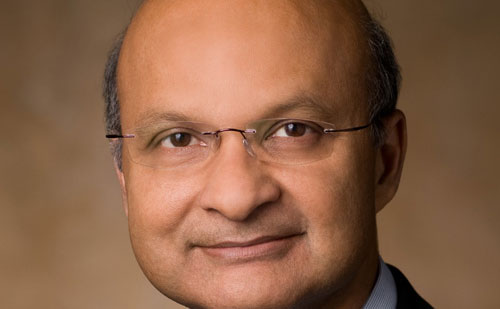Despite the failure, Omar Ishrak said Medtronic won't shy away from risk in medtech.
January 14, 2014

|
Medtronic CEO Omar Ishrak |
From the moment Medtronic CEO Omar Ishrak took over as CEO of one of the most well-recognized medtech companies in mid-2011, he talked about the philosophy that would guide future acquisitions: discipline.
So, given the failure of Medtronic’s hypertension trial that tested the much-ballyhooed Ardian renal denervation technology obtained through an $800 million acquisition flawed? [The acquisition was made before Ishrak’s time and was overseen by former CEO Bill Hawkins, who did other large and small acquisitions in his three-year tenure.]
No, said Israk flatly at the JPMorgan Healthcare Conference in San Francisco on Monday.
“This was not an execution issue,” Ishrak said. “It’s not where we did the acquisition before thinking, nor one where the model’s didn’t make sense.”
The hypothesis for acquiring Ardian was based on the assumption that the clinical trials would work, Ishrak continued, noting that there are risks to conducting clinical trials and sometimes you have to live with the results.
While he declined to speculate on the causes of the failure of what has been described as the largest clinical trial to date of renal denervation with more than 500 patients, Ishrak was very clear on what it does not mean.
“This doesn’t mean that we are going to walk away from risk in medtech,” he said. “We are going to sharpen our pencils a bit more on due diligence.”
Ishrak added that experiences like these reaffirm his strong belief in having diversified end markets. In an earlier presentation at the conference, Ishrak described how emerging markets, as well as services and solutions business are two businesses that will secure Medtronic’s future in addition to its traditional innovative therapies business.
“If you have diversified end markets, you can absorb these [disappointments] and it gives you the ability to take clinical trial risks,” he said.
—Arundhati Parmar, senior editor, MD+DI
[email protected]
You May Also Like



